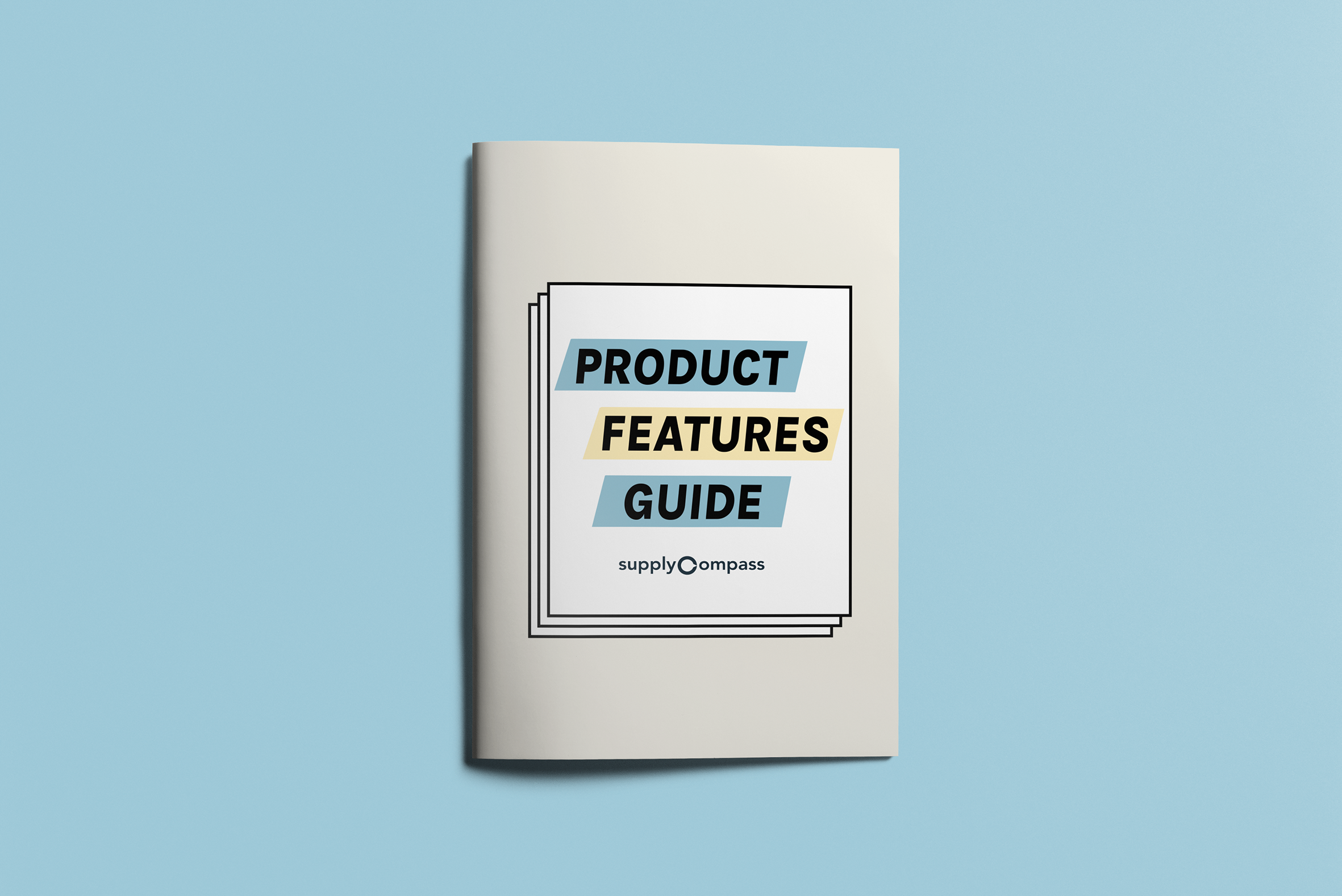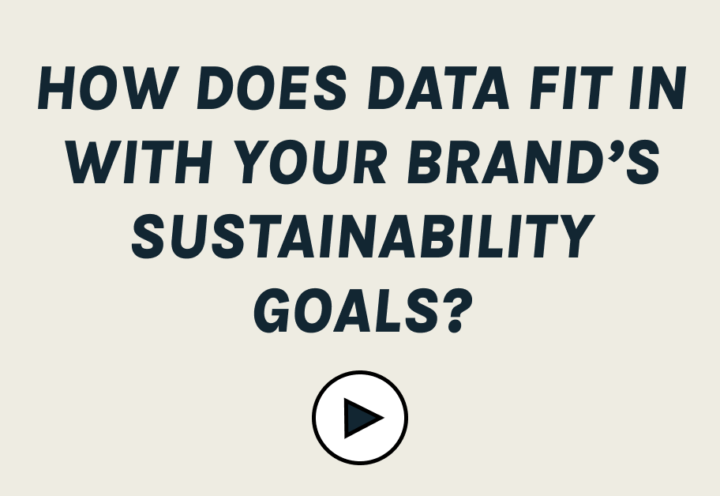In Conversation With Gordon Renouf, Co-Founder & CEO of Good On You
9 min read May 4
All photography provided by Good On You. Images of Emma Watson by Kerry Halihan / AUGUST.
SupplyCompass speaks to Gordon Renouf, the Co-Founder & CEO of Good On You, the world-leading source of trusted brand ratings, articles and expertise on ethical and sustainable fashion. Since 2015, they have built a database of thousands of fashion brands, all assessed against their robust rating system for their impact on people, the planet and animals. They are supported by some of the biggest names in the industry, including Emma Watson, the world-renowned British actor and ethical fashion pioneer.
In Conversation With is SupplyCompass’ interview series highlighting fashion businesses from around the globe who are balancing people, profit and planet, and are leading the way when it comes to responsible business.
What prompted you to start Good On You?
Before Good On You, I worked for consumer advocacy organisations – standing up for consumer rights and helping provide the information we need to make good choices. One of the things I learnt was that people are not getting the information they want to make sustainable consumer choices. A majority of us want to find products that are made in ways that match our values – especially in relation to the environment, the welfare of animals and the interests of workers. But it’s just too hard to find information that’s independent, trustworthy and comprehensive.
Clothing is a massive, global industry that makes up a fair share of our annual spending. And it’s an industry that frequently wastes resources and unfairly exploits people and animals. It’s really hard for a consumer to find out the relative impact of high street brands, and it’s hard to discover sustainable brands that do better.
So Good On You works to solve that problem bringing together a trusted brand rating system with advice and tools, to help consumers know the impact of brands and choose better.

Good On You is not only about making you feel good about your shopping. Our purpose is to create change. By making it as easy as possible for each of us to choose and reward responsible fashion brands that do good, over the ones that don’t, together we can drive the whole industry to become more sustainable and fair. By changing fashion for the better we can have a direct impact on issues like global warming, human rights and animal rights.
What does sustainability mean to you, and how does this translate to Good On You?
First and foremost we stand in the shoes of the individual shopper who wants to ensure their consumer choices contribute to a better world. We provide our community with the confidence that they know the extent to which a brand is addressing the most material impacts in fashion.
Sustainable fashion means protecting the future of our planet and its people when we design, create and wear our clothes. This includes carefully managing resource use to reduce waste and climate impacts, protecting the welfare of animals, and ensuring the safety and fair treatment of workers all the way down the supply chain. Empowering shoppers to know the impact of brands will have a huge impact on the sustainability of fashion.
The Sustainable Development Goals are a lodestone that we believe should be the starting point for all work in the area. Everything we do contributes to UN Sustainable Development Goal 12: “Ensure sustainable production and consumption patterns”. Our work is also influenced by the following goals: gender equality, poverty reduction, climate change, water and biodiversity.
What role does technology play when it comes to sustainability and engaging with a community like yours?
The Good On you brand rating system uses technology to collect, score and manage complex information on a company’s sustainability practices. It aggregates brand data like price, style and location, and adds a ‘similar brands’ recommendation system so that shoppers can make choices that match their values and preferences.
Our detailed brand sustainability scores are invaluable for retailers to improve their offering and reach new user segments.
With more than 500 data points per brand, Good On You is the world’s most comprehensive consumer-facing brand rating system. It can be applied to any brand in the market and covers the most material issues. We’ve already rated 2500 brands, and with continued tech innovation, we aim to double that by 2021.

Can you walk us through how you rate how ethical a brand is? How does a brand get rated/join Good On You?
Our starting point is an expectation that brands are fully transparent. Shoppers have a right to know how the products they buy are made and how they impact on the issues they care about.
We review publicly available information about how each brand impacts on the most material issues in fashion supply chains. We map relevant certification schemes, independent assessments and multi stakeholder initiatives to those issues and then look further at relevant voluntary standard systems, and any other actions the brand has taken to take to address those material issues.
Brands are scored on a five point scale for each of labour, environment and animals, and then given an overall rating from We Avoid through Not Good Enough, It’s A Start, and Good to Great. You can find out more detail on the Good On You ratings methodology here.
We receive a lot of requests for new ratings, and we prioritise brands that our users and customers are asking for. When a brand publishes more information that is deemed to be material, we trigger a ratings review, and in any case aim to update ratings every 12-18 months.
We review the rating methodology every year, taking into account new developments and input from key experts, civil society organisations and industry stakeholders. We’ll be announcing some important changes based on last year’s review in the next month or so.
We know that Emma Watson, British actor and ethical fashion pioneer, endorses and uses your platform. Can you tell us more about this?
Emma Watson is known for using her powerful voice for good, including as an advocate for sustainable fashion.
We first had the chance to work with Emma back in 2018 on Vogue Australia’s first sustainability issue. Emma invited Good On You to be the verification partner so she could be confident the brands she chose to wear for the issue were assessed for their impacts using a robust approach.

We saw an opportunity to keep working together to help raise awareness of the issues in fashion and fast-track the movement for change. Today, Emma continues to use Good On You as her benchmark for sustainable fashion choices – from cover shoots to the red carpet. We’re so grateful to have her ongoing support.
Good On You is my benchmark for sustainable fashion. This means that when I’m given a platform to speak about my choice of outfit, I will have a meaningful story to tell. And it’s powerful.
How have you seen the Good on You community develop over the years?
When we first launched in Australia the Good On You app was downloaded 10,000 users within 8 days. This convinced us there was a huge demand for trusted information about fashion brands. Since then we’ve launched in North America and Europe and our app and online directory, Journal and social channels now reach more than 3 million people each year.
We’re seeing more and more sustainable brands emerging that can benefit from being on our platform, and we’re supporting more retailers who want to stock the most sustainable brands and communicate that to their customers.
What are your aspirations for the future of Good On You? Where would you like to take the company in the future?
As I mentioned before, Good On You is a way for people to create change. Our goal is to accelerate that change with 100s of millions of people benefiting from Good On You ratings wherever they shop.
We’re really excited by the opportunity to build on our position as the trusted standard for sustainable fashion and connect the Good On You community with our growing network of leading brands.
We’re also excited by our work with retailers who can use Good On You brand data to assess, source and market sustainable brands. Last year we partnered with Farfetch on a major new initiative to expand the sustainable fashion movement into the luxury sector. Farfetch’s latest Positively Conscious collection, launched last October, features hundreds of fashion brands that have been independently rated by Good On You for their impact on people, planet and animals.

In light of the current COVID-19 pandemic, how has Good On You adapted?
First and foremost we’re concerned about the impact of the pandemic on people at the core of our mission, particularly the workers in the fashion supply chain. We’ve updated our ratings methodology to score large brands on how they treat their suppliers during the pandemic. We’ve examined the mixed response of fashion brands and promoted initiatives like Workers Rights Consortium that keeps an up to date list of which brands have committed to looking after their suppliers.
But our unique contribution is in helping sustainable brands find their market in these challenging times. We’re shining a light on brands that are doing right by workers, amplifying their reach to help them survive and prosper. Now more than ever the Good On You community is focussed on making sure their shopping choices do good for the world. We’re also supporting multi-brand retailers that want to promote sustainable brands to their own customers, offering access to Good On You ratings data and traffic.
What are the most important values to you as a business?
First, be human. This means to care about our planet and each other - but it also means that we respect that people want to have fun, to live their life, to make choices about their identity. Fashion plays an integral part in most people’s daily lives and forms an important part of who we are. That’s why we focus on the positive stories in fashion, to engage and inspire a wider audience. It’s no use hoping to change the world by denying people pleasure, including the pleasure they get from fashion - they simply won’t respond.
Being trustworthy, accessible and making a difference are also really important values to us. We’re independent, but we aim to collaborate with the many civil society organisations and industry players that are committed to creating the positive change we all want to see.
It’s easy to think that individual actions don’t matter, but they do. Everything starts with you.
Can you give other examples of brands doing great things?
At Good On You we celebrate the brands that make the kind of clothes people want to wear while respecting the values that are important to their customers. So for us ‘great things’ means making desirable clothes together with top sustainability performance. Some brands that we think do this well:
- Outland denim was created to provide opportunities to women who experienced exploitation. They put their people first to create an awesome product, use a high proportion of eco-friendly materials and low impact dyes. We’ve rated them 5/5, Great.
- Armed Angels, also rated Great, has been a champion of sustainable fashion for many years. They go to great lengths to use recycled materials and sustainable materials, they have a detox denim campaign to remove chemicals from their supply chain, and they’re working on a zero-waste circular t-shirt. They work with Fair Wear Foundation to ensure their labour conditions are fair, with most of the workers in its supply chain assured of a living wage.
- Funky Kalakar, rated Good, makes quality handbags and shoes using vegan materials, certified by PETA. It uses some upcycled materials, traces most of its supply chain and ensures payment of a living wage at the final stage of production.

What advice would you give to brands trying to be more responsible?
For most brands it’s best to avoid trying to fix everything at once. The issues are complex so trying to be perfect immediately is a sure fire way to set yourself up to fail. Figure out the places where your operations have the highest impact and work out a plan to address each issue in turn, taking into account which changes you can most readily make that will have the greatest impact. Set targets, communicate progress, and celebrate wins.
Conversely, don’t be tokenistic. Do not think you can be a sustainable brand by addressing only one easy issue. Just because you’re transparent about where your factories are doesn’t mean you are paying your workers a living wage or addressing climate change. Likewise it’s not much use being vegan if the depletion of natural resources or chemical pollution caused by your supply chain leads to a loss of animal habitat.
But maybe there’s an exception to the ‘don’t be perfect’ rule. If you’re about to start a new brand you do have the opportunity to design your business to be sustainable from the ground up. Can you figure out how to make the clothes you want to make with the minimum possible impact on people, planet and animals? There’s some amazing brands like A.BCH that are giving it a go!
Highlighting fashion and homeware brands from around the globe who are balancing people, profit and planet.
Gus is CEO of SupplyCompass. He is responsible for driving sustainable growth across the business. He believes that we now live in a world of connected and conscious commerce and that brands and manufacturers are grossly underserved by their current tech stack to change the way they work for the better. He is building SupplyCompass to help brands and manufacturers collaborate more effectively from design through to delivery and embed sustainable practices into their everyday operations.
More on our blog
We’ve launched our comprehensive Product Features Guide!
We’ve just launched The SupplyCompass Product Features Guide. We break down all our 95+ features and sub-features, explaining how you can use them and what makes them tick—so you can understand how SupplyCompass can help SME fashion brands like you.
Right Thing #5 - The name of the game is Agility
In agility, there’s a real emphasis on co-creation, on a cycle of continuous improvement, production and distribution with regular reflections on how to be better by constant fine-tuning and adjusting. Brands and supply chains being agile will, no doubt, be the most successful — and sustainable — organisations of the future.
Here’s how tech enables sustainability
What’s the first thing that comes to mind when you think of sustainability? Data is rarely the answer. Watch/Listen to Co-Founder and Head of Product Flora Davidson explain how technology can enable brands to embed sustainability principles into their business.
Get started with our platform
Read the Right Thing
Subscribe to join sustainability nerds, production gurus and thought leaders from companies like Ganni, Adidas, AllBirds and Finisterre & become part of the 10,000+ community who get The Right Thing—a fortnightly letter straight from our Co-Founder’s desk.



